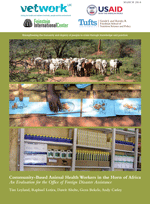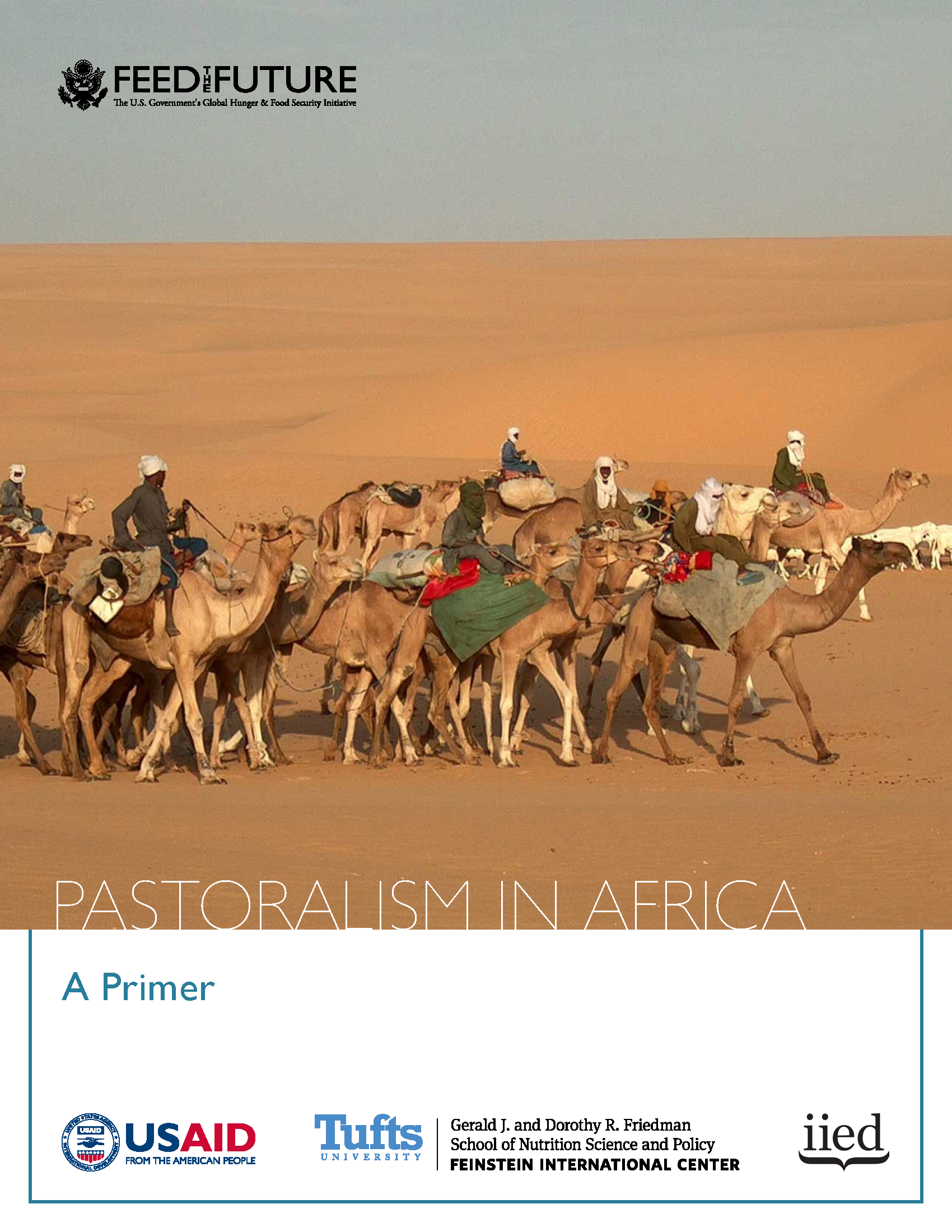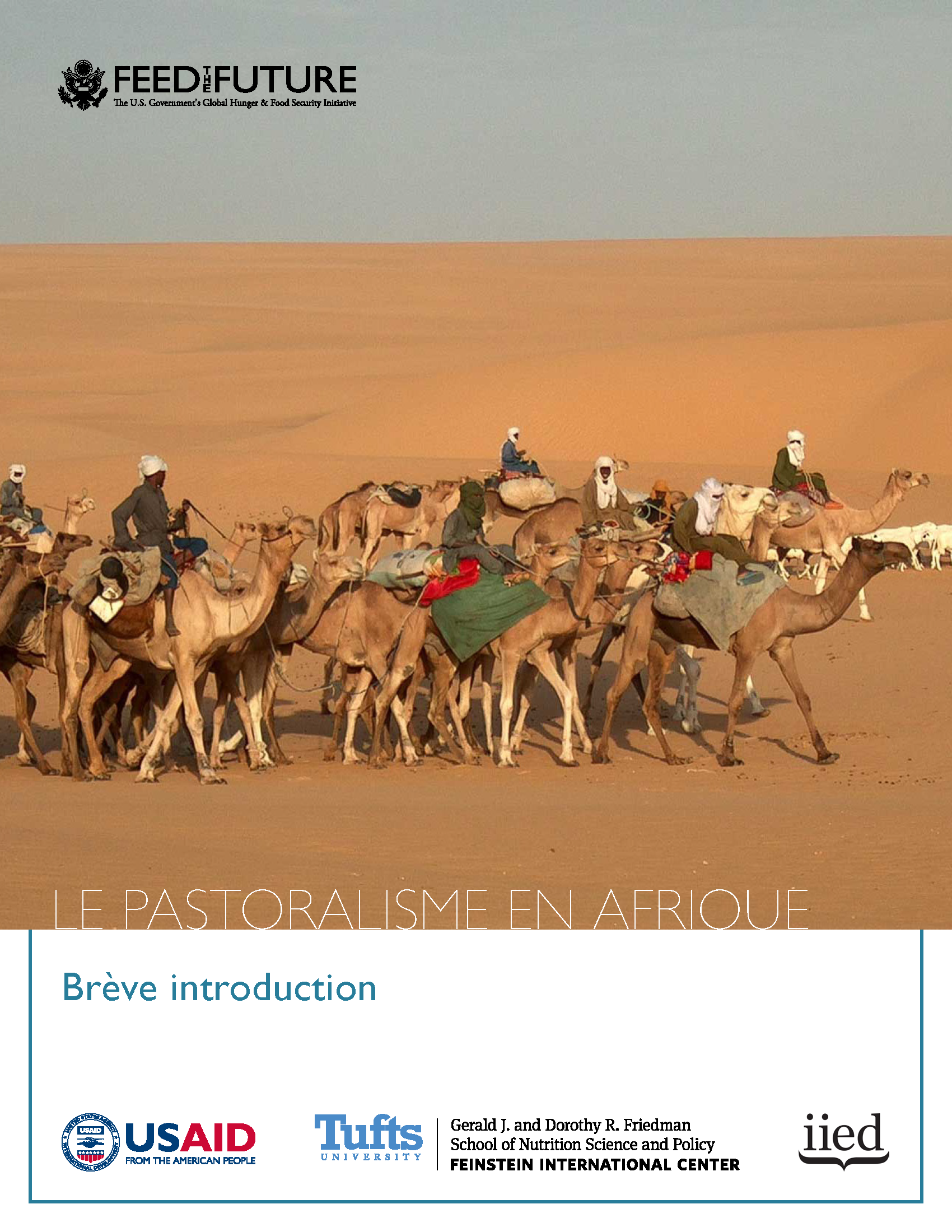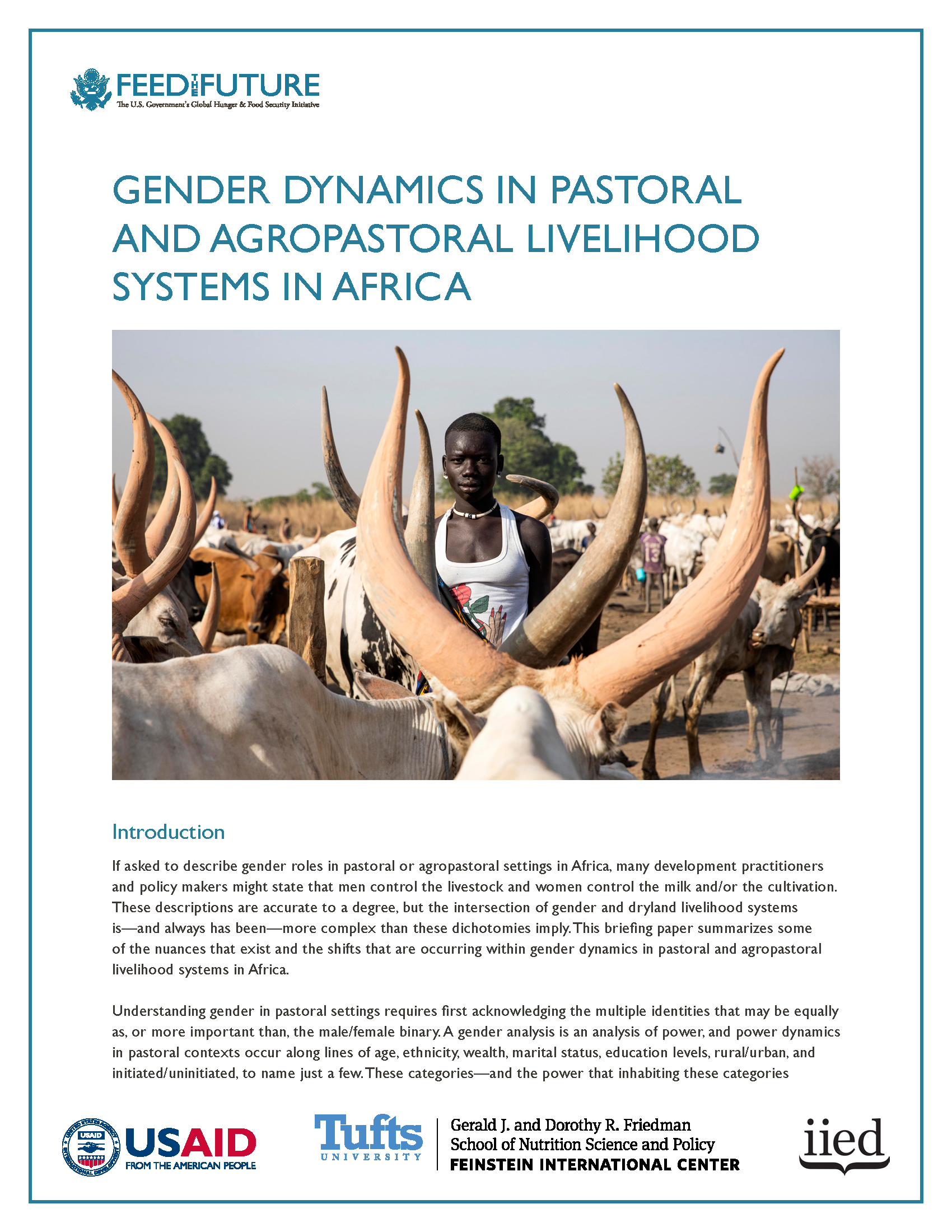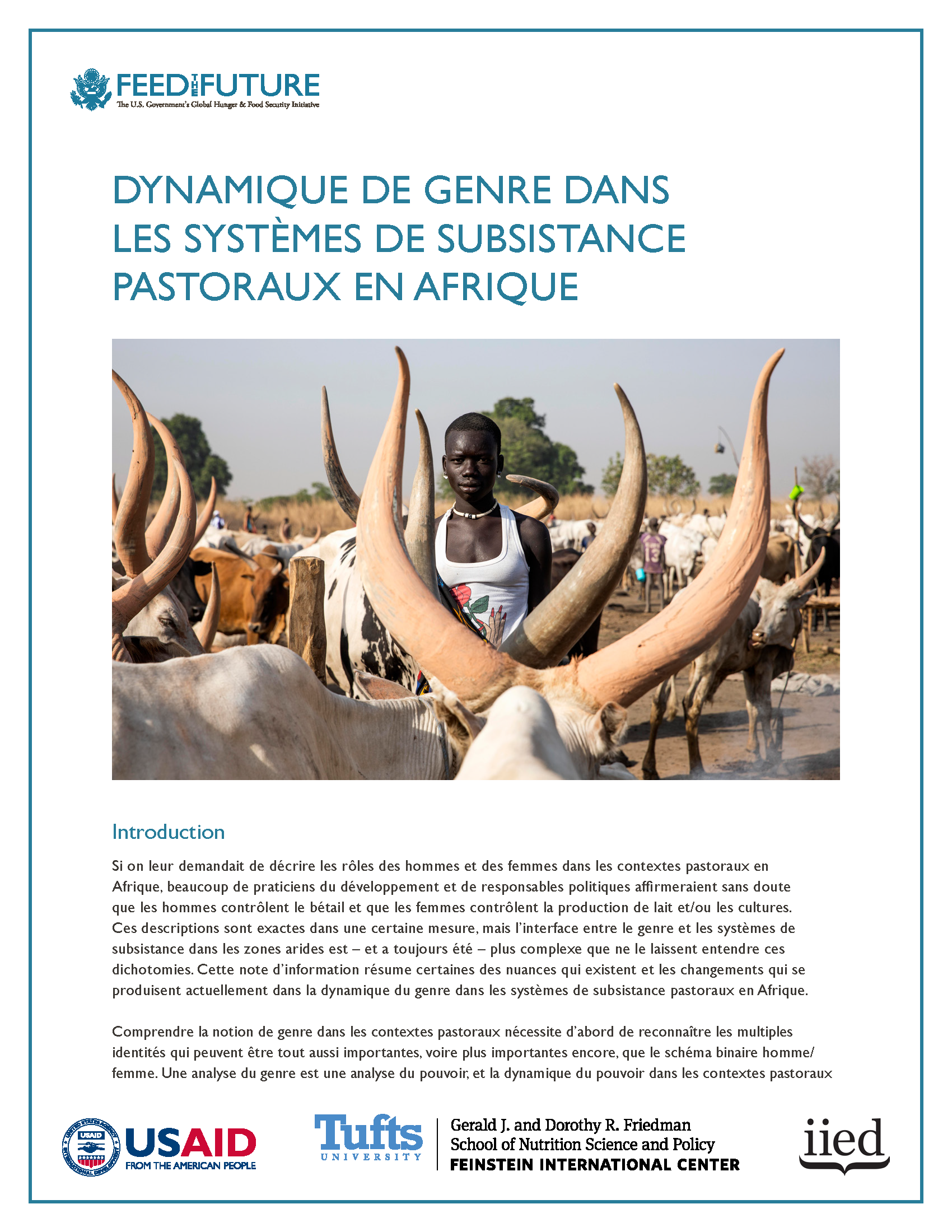This report describes the process and findings of an evaluation of community-based animal health workers (CAHWs) in Kenya, Ethiopia, and South Sudan.
Overall, the researchers find that CAHWs continue to be the preferred service provider at the community level, and that their assistance has a significant positive effect on the livelihood impacts of livestock diseases. However, CAHWs are hindered in their work by weak veterinary governance. Similarly, although there is great potential to use CAHWs in official disease surveillance, this potential remains unrealized due to weak linkages between government and CAHWs in remote areas.
The authors find an urgent need to:
- Collect quantitative evidence on the state of the veterinary pharmaceutical trade and drug quality
- Strengthen local and national veterinary institutions that train, regulate, and supervise CAHWs, and support access to quality drugs and vaccines
This evaluation was conducted in collaboration with Vetwork UK in Kenya, South Sudan, and Ethiopia, between June and December 2013. Each country assessment comprised three main activities: a field-level assessment of selected CAHW projects using participatory methods and interviews with community informants and CAHWs; key informant interviews with senior policy makers, legislators, and project implementers; a national CAHW workshop to feedback initial findings and discuss ways forward for CAHW development. The evaluation was commissioned by the US Office for Foreign Disaster Assistance.

